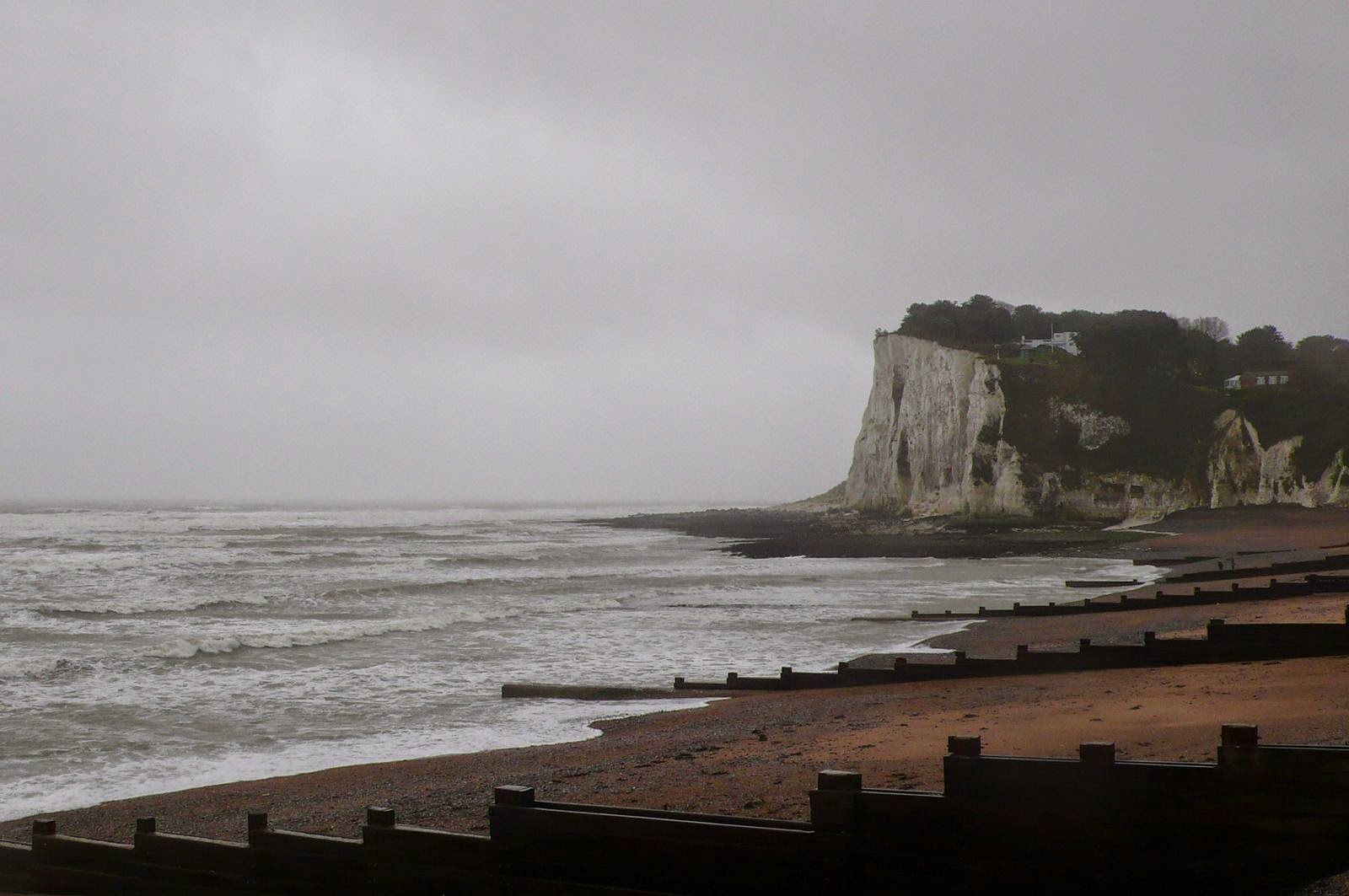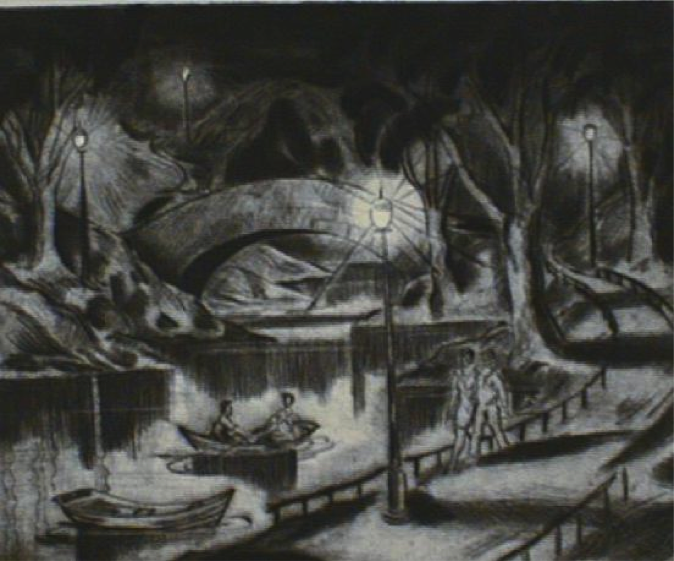
Dover Beach
The sea is calm tonight.
The tide is full, the moon lies fair
Upon the straits; on the French coast the light
Gleams and is gone; the cliffs of England stand,
Glimmering and vast, out in the tranquil bay.
Come to the window, sweet is the night-air!
Only, from the long line of spray
Where the sea meets the moon-blanched land,
Listen! you hear the grating roar
Of pebbles which the waves draw back, and fling,
At their return, up the high strand,
Begin, and cease, and then again begin,
With tremulous cadence slow, and bring
The eternal note of sadness in.
Sophocles long ago
Heard it on the Ægean, and it brought
Of human misery; we
Find also in the sound a thought,
Hearing it by this distant northern sea.
The Sea of Faith
Was once, too, at the full, and round earth’s shore
Lay like the folds of a bright girdle furled.
But now I only hear
Its melancholy, long, withdrawing roar,
Retreating, to the breath
Of the night-wind, down the vast edges drear
And naked shingles of the world.
Ah, love, let us be true
To one another! for the world, which seems
To lie before us like a land of dreams,
So various, so beautiful, so new,
Hath really neither joy, nor love, nor light,
Nor certitude, nor peace, nor help for pain;
And we are here as on a darkling plain
Swept with confused alarms of struggle and flight,
Where ignorant armies clash by night.
~
I first read Matthew Arnold’s “Dover Beach” in 7th Grade because the poem’s final stanzas are in Ray Bradbury’s Fahrenheit 451. The poem immediately fascinated me; at that time, it was the most depressing poem I’d ever read. I was struck by the poem’s sadness because it was uncompromisingly honest. I don’t think I knew that people were allowed to write that negatively about life. They absolutely can. And sometimes they need to. I think Mathew Arnold (1822-1888) needed to when he wrote this. I don’t believe that the world “hath really neither joy, nor love, nor light, / nor certitude, nor peace, nor help for pain.” But I know that sometimes I feel that way. I think everyone feels that way at one point or another.
This is also an epiphany poem. It’s a poem that recognizes pain and anguish and desperation. The speaker urges the reader to “be true / to one another” in a world that is perhaps emptier than it seems. The reader too hears a “melancholy, long, withdrawing roar” in his own mind. Despite the poem’s darkness, it is a meditative piece. The narrator eases the reader into a trance-like calm where “the cliffs of England stand, / limmering and vast, out in the tranquil bay.” Distractions dissolve in the moonlit night. It’s this composure that makes the poem tolerable. The night, the cliffs, and the waves (though ominous) offer solace for “the turbid ebb and flow / Of human misery.” The reader is not left hopeless.”Although “ignorant armies clash by night” there is the sense that the narrator will carry. There is a sense of knowing resolution.
—Marshall McMurry
Marshall is a native of San Antonio majoring in English and Creative Writing.







